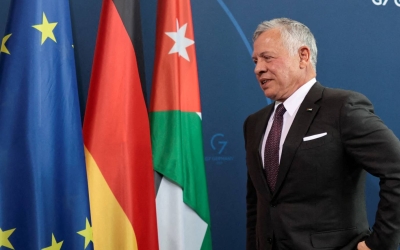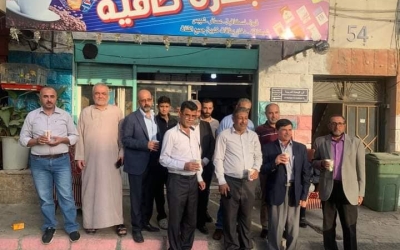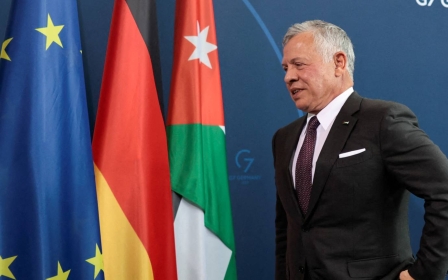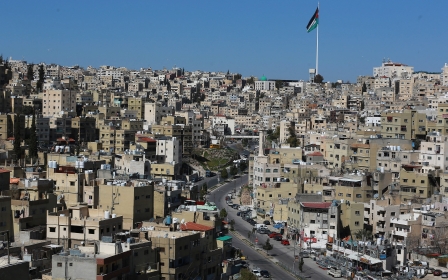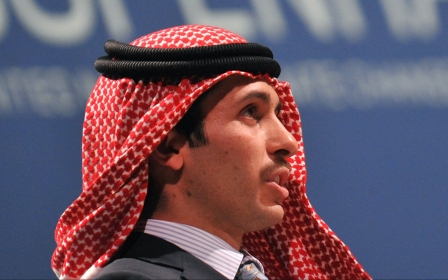Jordan: Press freedom at stake as parliament seeks jail terms for violating gag orders
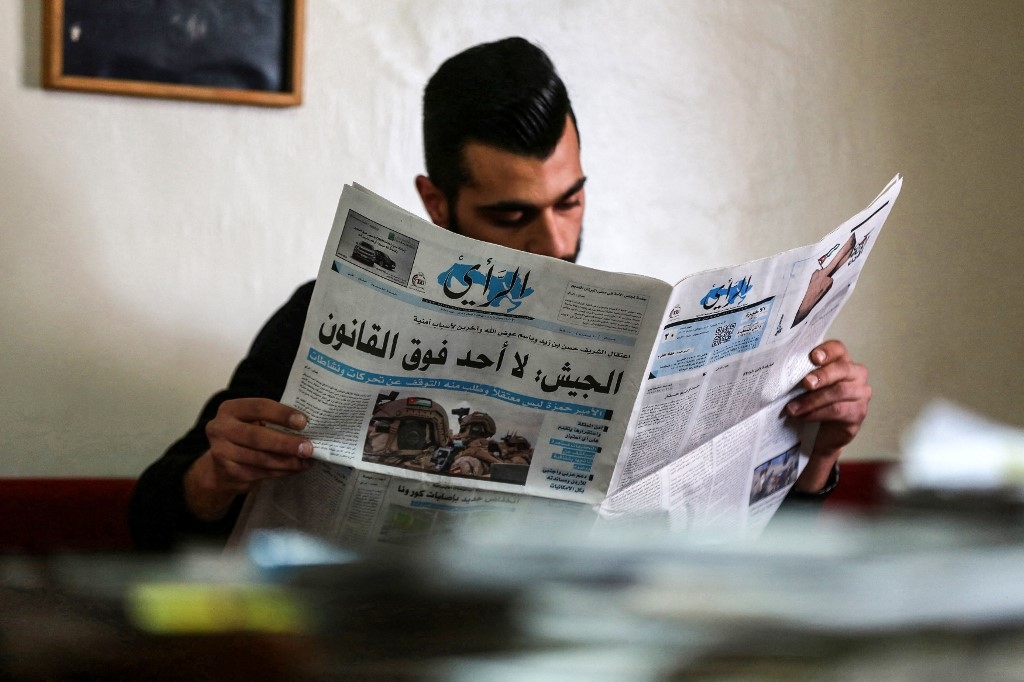
The vote by the Jordanian parliament to increase the punishment for journalists covering secret trials or criminal investigations has sent shockwaves among media workers in the country.
Media workers say the amendments are yet another attack on press freedom, which has already been muzzled by laws and decisions banning media coverage of sensitive or controversial issues, including news of the royal family, workers' protests, and corruption allegations.
Prior to the amendment, Article 225 of Jordan’s Penal Code stipulated a fine of $17 for violating gag orders, but now MPs voted to add a jail term of three months.
“The amendment is an encroachment on the law and an attempt to terrorise journalists,” Basel Okor, editor of Jo24 website, told Middle East Eye.
Okor was detained in the summer of 2020 after he covered the teachers' union protests that demanded higher pay. He was later released and found innocent of any wrongdoing.
“I did not publish details of an investigation, all I did was to cover teachers’ protests and arrest of protesters.
“Amending article 225 of the penal code is simply an attempt to scare journalists by adding detention as punishment. This is a dangerous narrowing of press freedom which undermines efforts for political reform.”
The amendment, passed on Tuesday by the House of Representatives, requires the approval of the Senate and the signature of the king to come into effect.
The new punishment is similar to the one stipulated in article 11 of the controversial cybercrime law, which criminalises libel and slander with up to three months in prison.
But the cybercrime law has been denounced for targeting hundreds of political activists, journalists and regular citizens who have found themselves in jail or in front of a judge for expressing their political views on their social media accounts.
'Amending article 225 of the penal code is simply an attempt to scare journalists by adding detention as punishment,'
- Basel Okor, journalist
The new penalty targets anyone who publishes content on criminal investigation documents prior to their official announcement, sessions of secret and libel trials, and any trial in which the court issues a gag order.
Jordanian authorities have used gag orders in the past to quash discussion of issues that were of interest to Jordanians. The orders were not limited to banning the publication of investigations, but they included coverage of news stories such as the leaked Pandora Papers that exposed expensive real estate dealings of King Abdullah II.
A gag order also prohibited publishing news about the teacher’s union strike, as well as the court-mandated gag order on the alleged coup plot involving the king's half-brother, former royal court chief Bassem Awadallah and an ex-envoy to Saudi Arabia, Sharif Hassan bin Zaid.
Even the story of a lawsuit by the prime minister against the activist Kamel Zoubi was placed under a gag order.
Zoubi was arrested on 24 October for posting on his Facebook page that the wife of Jordan's prime minister, Bisher Khasawneh, receives a monthly salary of JD5,000 ($7,000) from an official agency.
Khaswaneh had issued a complaint based on the cybercrime law, stating to a court that Zoubi's post was "hurtful to him morally and psychologically" and that "it also contained fake news".
‘Handcuffed’ media
Using Jordanian laws in the past to jail journalists has had a chilling effect on other reporters in the country.
According to statistics from the Jordanian Public Security, the cybercrime division received 1,473 complaints in the month of March alone. Most of the complaints are from citizens complaining about “defamation, cursing, and blackmail”.
Walid Hosni is another journalist who was jailed in accordance with the cybercrime law due to his writings. Hosni was first prosecuted after he criticised the situation in a local government hospital. He then faced trial over his publishing of an official police statement about the arrest of a man who threw boiling water at his wife’s face.
Hosni told MEE that these cases have led to more self-censorship. “We are afraid of going to jail due to the cybercrime law and other laws such as the amendment that stipulates imprisonment for violating gag orders. This is causing real worry.”
A survey of 150 journalists conducted by the Centre for Defending Freedom of Journalists (CDFJ) in February showed that 14 percent of respondents found Jordan’s media to be “not free”, 40 percent said the media is “handcuffed,” while 26 percent said it was “partially restricted”.
The report outlined complaints by journalists who spoke of unannounced interventions in their work, the limiting of freedoms, and the abuse of gag orders.
The report accused parliament of dealing with the press as a hostile enemy.
'Journalists will think a million times before challenging gag orders'
- Nidal Mansour, Centre for Defending Freedom of Journalists
“The report reflected the existence of a political environment that is the reason behind the restriction of press freedoms and that there is no environment that is supportive of the media,” he said.
CDFJ board member Nidal Mansour told MEE that the addition of a prison term for violating gag orders will increase the fear among journalists. “Journalists will think a million times before challenging gag orders.
“The amendment is a reflection of the thinking of the government and the parliament towards the press.”
Khaled Qudah, a member of the Jordanian Press Association (journalists' union) agrees with Mansour.
“This is yet another restriction on press freedoms. It will make media outlets unable to carry out their role in addressing issues of public interest, even if these issues are in an early stage of discussion,” he told MEE.
“These amendments can’t be seen in isolation from the way this government has been restricting freedom of expression using creative ways, including detention, arrest, playing with laws and even directly appointing heads of media outlets who are hesitant to tackle corruption in their institutions by protecting them.”
However, MP Yasar Khasawneh believes the amendment “has nothing to do with narrowing press freedom”.
“It is only concerned with the publication of cases that are being reviewed by the attorney general. Publishing such information especially when it comes to the rights of people during the period of the investigation could cause harm to the defendant who might end up being exonerated. Publication, therefore, causes pressure on the implementation of justice.”
He added that “journalists are talking about the king, government, and parliament, and no one stops them. We as MPs defend journalists because we believe in the importance of journalism for our homeland.”
Middle East Eye propose une couverture et une analyse indépendantes et incomparables du Moyen-Orient, de l’Afrique du Nord et d’autres régions du monde. Pour en savoir plus sur la reprise de ce contenu et les frais qui s’appliquent, veuillez remplir ce formulaire [en anglais]. Pour en savoir plus sur MEE, cliquez ici [en anglais].


